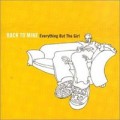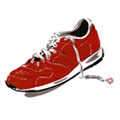Hmm…
I’m checking my calendar. What’s today? Oh, of course. It’s Wednesday, the last day of August. What am I scheduled to blog about? I check my itinerary and…yes, of course. I want to blog about certain films by Stephen Sommers, and how, when you hear your neighbors watching them in the afternoon, it sounds as if they’re watching a film about pterodactyls. And then I plan to go off on an amusing tangent about how wouldn’t it be funny if, in an alternate version of today’s planet, we were all evolved from pterodactyls yet everything else were the same? What would it be like to watch Brigadoon?
But man, check out what’s happening in Louisiana:

It makes you want to go there and help out. But then maybe money’s better. What should we do? Money? It sounds so…cheap. We really should go help out. I mean, should we go to Louisiana and throw ourselves into the fray? Or should we scrape together a few coins and drop them in the big donation bottles now sitting on the counters at Amoeba?
Then BoingBoing publishes this comment from reader Eric V. Olson, and the latter makes a lot more sense (grammatical idiosyncracies preserved):
People want to help. That’s good. The problem is they often can’t, but they think they can. And, in the end, all they really do is get in the way.
The single best thing Joe Geek can do is give cash. Not stuff, cash. Cash is portable, fast, and useful. Everything else has problems — even if it is something they really and truly need, because it isn’t there, and people and resources are needed to get it there.
The canonical example: Bottled water. Something otherwise useless that is critical in this sort of emergency. So you give a few flats to the ARC. Well, you bought them at retail, and now, the ARC has to put them on a truck (which costs money) and ship them down there (which cost money, and time.)
Let’s say you give them $20 instead. The ARC notes that they need water. So, they call a bottler in a city close to, but not affected by, the storm. They get wholesale or cost prices, as opposed to retail. For the same amount of money, they get far more water, far closer to where they need to be. In six hours, you’re delivering your flats to the local ARC office. In six hours with cash, they’re handing water to people who desperately need it.
Finally, of course, if what they really need is food, your flats of water aren’t helpful, but your cash is. So, the lesson:
1) Give cash. That’s the best thing you can do from your home.
2) Stay the hell away from New Orleans. Seriously. They’re ordering everyone out, that includes you. Do not go.
3) If you are trained to do rescue work, they have almost certainly called you by now. If not, check in with your local org — records and such get lost, and they may have missed you.
4) If you really insist, go to your *local* American Red Cross office and talk to them. If, in fact, they do need a skill you have, they’ll put you with the people you need to know, and start the wheels moving. The single biggest thing the ARC does in disasters is routing solutions to problems.
5) If you have supplies, not cash, you can talk to the local office, but realize that the cost of shipping your supplies may make them worse off then just buying them closer. If you have supplies *and* shipping — and we’re talking trucks, not FedEx, — then call the local ARC, and talk to them, and if they need what they have, they’ll put you in touch with the people who need it, who can arrange how to get it to them.
In general, when they need something, they need lots of it, either in one place or put into one place so they can easily distribute at need. One satellite phone isn’t that helpful, esp. if they have to figure out how to make it work. A thousand phones, ready to go, however, is.
6) If they really need what you have to offer, and you are one of the few who can provided it, they’ve probably called you by now.
7) If you want to help in the future, start working with rescue orgs now. If you haven’t been trained in general rescue procedures, your not nearly as helpful. Think of it as backups — you can’t help New Orleans now, but there will be other bad days, and if you’ve done the classwork and drills, and kept in touch, then you will be one of the people they need — and they’ll call you when they need you. It may not be as elegant as network support — but right now, they don’t care about TCP/IP. They care about getting people out of the floodwaters, and plugging the holes in the levees.
So I scrape some quarters into my pocket and head off to work. And I wonder as I walk, “Wouldn’t things have been so much easier if we were, in fact, evolved from pterodactyls? Then those people on top of the Chevy Suburban could’ve just flown away from the danger. And made a hell of a racket doing so, I bet.”




















